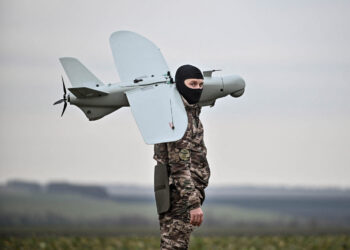,
The United Nations said it was sending a team to assess how to protect refugees and displaced people in Chad and the Central African Republic (CAR) from a spillover of fighting in neighboring Darfur.
Jean-Marie Guehenno, the French head of UN peacekeeping operations, told reporters Tuesday that the team “should be on the ground early next week”.
He expressed concern about the worsening spillover of ethnic violence in Sudan's Darfur region into neighboring eastern Chad and CAR.
Monday, the Chadian government declared a state of emergency covering much of the country after recent clashes between Arab and non-Arab communities killed hundreds of people in the east.
The Chadian government has blamed Khartoum for causing the latest bout of unrest, accusing the Sudanese government of launching “a global strategy … to destabilize Chad.”
Late last month, Guehenno said a UN team would be sent to the area to look at various options for a UN presence to assist refugees and internally displaced people.
In recent weeks, UN diplomats have spoken of the possibility of deploying a police force to Chad to protect the more than 200,000 Sudanese refugees and more than 50,000 internally displaced persons.
The Security Council decided last August 31 to send up to a 20,000-strong UN force to Darfur to take over peacekeeping from cash-strapped and ill-equipped African Union troops who have failed to halt the bloodshed.
Khartoum is adamantly opposed to a robust UN presence in Darfur but has given the green light for the UN to provide logistical and command and control support to the AU force.
Chadian authorities have warned the UN not to use their territory as a rear base for intervention in Darfur if there is no consent from Khartoum.
They have suggested that the UN could help Chad through the deployment of an international civilian force made up of gendarmes from African countries selected by the Chadian government that would secure refugee camps and ensure their neutrality.
UN officials said Annan would eventually submit recommendations to the Security Council on a UN presence in Chad and CAR following consultations with interested parties.
Last weekend French Foreign Minister Philippe Douste-Blazy, fearing a regional war in central Africa, sought during visits to Cairo and Khartoum to convince Sudan to accept the deployment of an international force on its borders with Chad and CAR, two former French colonies.
Beshir who received Douste-Blazy Sunday evening, would only commit himself to examining the possibility of deploying “observers”.
Tuesday, Congolese President Denis Sassou Nguesso, the current AU president, backed the French proposal to send an international force to maintain security along Sudan's borders with its neighbors.
The issue is expected to be discussed Thursday at a high-level meeting sponsored by the UN and the AU in Addis Ababa that will be attended by Britain, China, France, Russia, the United States, the Arab League, the European Union as well as Congo, Gabon and Egypt.









